
Last fall, I had 29 days of woodcock hunting, most of it in my home coverts in southeastern Ohio’s Hocking River Valley, with a couple of bonus road trips thrown in to destinations where grouse were a possibility, too: an early October week in north central Michigan with four old bird camp pals and five days in early November in the Berkshires of western Massachusetts with a group of new upland friends. Considering routine daily commutes to home coverts, long distance out-of-state travel, anxiety produced by unusual weather conditions that fluctuated from drought to sleet and the perpetual nagging suspicion that time afield subtracts from normal domestic and work-a-day duties, that month of pursuit amounts to an intensely compressed physical/emotional experience. It seems natural to feel a letdown when the game is over for the year and equally natural to want to revisit that part of the past to discover what sense can be made of it.
In six decades of uplanding, I have always dreaded the moment at the end of shooting season when the air goes out of the balloon, that inevitable moment when I am faced not only with the question of what to do next to occupy my time but how to explain the sudden onset of relative inactivity to my bird dog, which surely deserves better. Even the finality of necessary end-of-season tasks like cleaning shotguns, sewing torn brush clothes, tending to hunting gear, reorganizing equipment, etc., seemed somehow loathsome and to be avoided at all costs in order to extend the hunt vibe. I confess that’s a form of denial, clear and simple, to which I plead, “Guilty!”
Denne historien er fra Spring 2023-utgaven av The Upland Almanac.
Start din 7-dagers gratis prøveperiode på Magzter GOLD for å få tilgang til tusenvis av utvalgte premiumhistorier og 9000+ magasiner og aviser.
Allerede abonnent ? Logg på
Denne historien er fra Spring 2023-utgaven av The Upland Almanac.
Start din 7-dagers gratis prøveperiode på Magzter GOLD for å få tilgang til tusenvis av utvalgte premiumhistorier og 9000+ magasiner og aviser.
Allerede abonnent? Logg på

Tail feathers - STANDARDS AND PRACTICES
\"An armed society is a polite society,\" the NRA says in one of its dicta, cribbed from Robert A. Heinlein, a 20th-century American science fiction writer.
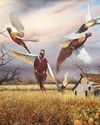
Day's End - IN PRAISE OF FENCEROWS
Driving north along the Hudson River, I gazed at a pastoral autumn scene: sere fields of faded yellow harvested corn, stubbly and broken amongst the clods of black earth, almost smooth from my vantage point. Spiky brown veins of wild growth marked barriers between plots. Occasionally, the gray bones of a mature oak rose among the brown shrubs to stand over the yellow fields. A sentry, keeping silent watch as white frost crystals slowly melted into invisibility.
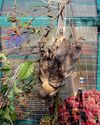
That Time of Year Again
Without doubt. The most idyllic form of hunting in Ohio is seeking the woodcock. - Merrill Gilfallan, Moods of the Ohio Moons: An Outdoorsman's Almanac (1991)
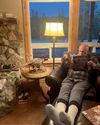
I Don't Wanna'!
I'm an old hand at being retired, though - have been practicing for 25 years.
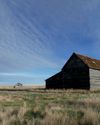
Hunting the Huns: Alberta's Big Sky Country
The prairies of southern Alberta are vast, beautiful and full of prime bird habitat. Crop fields are interspersed with abandoned farms, rolling hills are intersected by coulees and creek beds, and Hungarian partridge and sharptailed grouse occupy some of the best and most picturesque habitat on the continent.
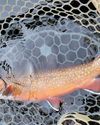
Side Dish - End of Season
Sporting trips are not only about sport, as many other experiences are discovered alongside. And my trip to Lakewood Camps in Maine was certainly just that.
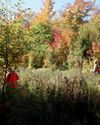
AN EXTENDED STAY
There is no reason to leave Michigan in the fall unless the opportunity of a cast and blast adventure at a historic sporting lodge in Maine comes calling.
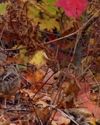
KEEP IT HANDY
If you think shooting a ruffed grouse on the wing with a shotgun is tough, try shooting one in flight with a still camera.
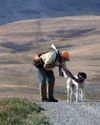
A Longtime Love Affair
It's possible to hunt your favorite birds in a lot of different places, I suppose, but I don't do that.
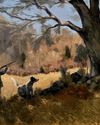
Profile of an Artist: Harley Bartlett
Harley Bartlett was born in 1959 near Pittsburg, Pennsylvania. However, having lived in Rhode Island for most of his life he considers himself a Rhode Islander.